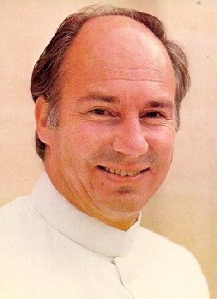Speech by H.H. The Aga Khan upon receiving the Key to the city of Dacca 1970-11-20
Mr Chairman, Your Excellencies, Commissioners of the Corporation, Ladies and Gentlemen. I am proud indeed to be your guest today and to be the honoured recipient of the key to the city of Dacca. Since I last visited Dacca nearly eight years ago, your city has visibly grown in stature, in beauty and in cleanliness. I congratulate the Municipal Authorities for the work they are doing and I would like to express my particular thanks to them and to the Police for making it possible to travel so easily to the outskirts of the city and through the busiest streets.
Sadly, this day also marks the conclusion of our brief visit to Bangladesh as the guest of your President and Government. It is fitting therefore, that I am able publicly to thank them, as well as the people of Dacca for the wonderful welcome we have received everywhere during our stay.
It has been a most rewarding experience. I have been readily granted invaluable insight into the aspirations of your country, the vigorous and progressive policies of your Government, the detailed plan for national development in both the economic and social fields.
For over 20 years, in increasing numbers of countries around the world, my community's institutions in the social and economic fields have been evolving, adjusting to new circumstances such as the transition from colonial or protectorate status to internal self-government, then independence, or to new economic conditions prompted by changing political policies.
New institutions and new management methods have been created to meet new situations, but one fundamental principal has remained unaltered; our institutions are to serve an ever-widening population and more particularly our brothers Muslims around us and in other parts of the world.
Thus it was that these institutions have participated in economic development activity in countries where the population was predominantly Muslim and we believe we could be of assistance. Thus it is also that a number of our important social institutions such as schools and hospitals are patronised by more than eighty percent of non-Ismailis. It is this spirit of participation in which we intend to serve Bangladesh.
Before I leave this afternoon I hope to have a discussion with your President on the broad lines along which we plan to make a positive contribution to the national economy. If I cannot spell out the details now, you will understand that on both sides there are practical details of implementation to be considered, as well as other participants to be consulted before an official announcement is made.
I can say, however, that I have been sincerely and deeply impressed by the thoroughness with which the authorities are approaching their heavy tasks, and I intend doing everything possible to assist them in a positive and practical way.
I am also happy to announce a gift to the Dacca Municipality of fifteen lac Takas to be devoted to the poor and deserving of this city in the social fields of education, health and housing. Before this money is disbursed I am requesting, Mr Chairman, that you should consult the leaders of my community here so that you can jointly identify really deserving cases who can be assisted either by scholarship in the field of education, by assistance to well-managed medical programmes or in the field of low-cost housing.
Even if priorities are such that major capital investment in these areas of social welfare is not possible at this present time, I also hope that the experience of experts consultants attached to the Aga Khan Foundation can be made available to assist the management of deserving projects in private and humanitarian sectors.
It has always been my firm belief that the efficient management of a hospital, a school or a housing estate is as important as it is to a business enterprise. The objective of efficient management in this case, however, is not to make money but to spend what is available in the most effective manner. Saving in this way, without lowering standards, means that many more people benefit from resources which are necessarily limited. In a developing country such as Bangladesh surely this must be highly important consideration, and it is my sincere wish that the Aga Khan Foundation will assist in this important work.
Mr. Chairman, you have been generous enough to present me with a key of this great capital city. The key, I believe, was originally regarded as the symbolic right of entry through the gates of a walled town and, in medieval Europe at least, it carried the privileges of what is still sometimes called the ‘freedom of the city.'
These privileges were of quite an interesting kind and included, for example, exemption from conscription into the armed forces, immunity from certain taxes, exclusive rights to certain trades or manufactures.
With this key, therefore, you are offering me a special tax status, exemption from military service and a trade monopoly. Whether all this quite fits into the definition of a modern mixed economy I do not know. In any event, however, I greatfully accept the key, and will hasten away to distant shores before it is too late.
On this somewhat lighter note, and with a smile on my face but with sadness in my heart, I will take your leave. My wife joins me in saying to you all: Thank you and Khuda Hafiz.
- 3130 reads
 Ismaili.NET - Heritage F.I.E.L.D.
Ismaili.NET - Heritage F.I.E.L.D.